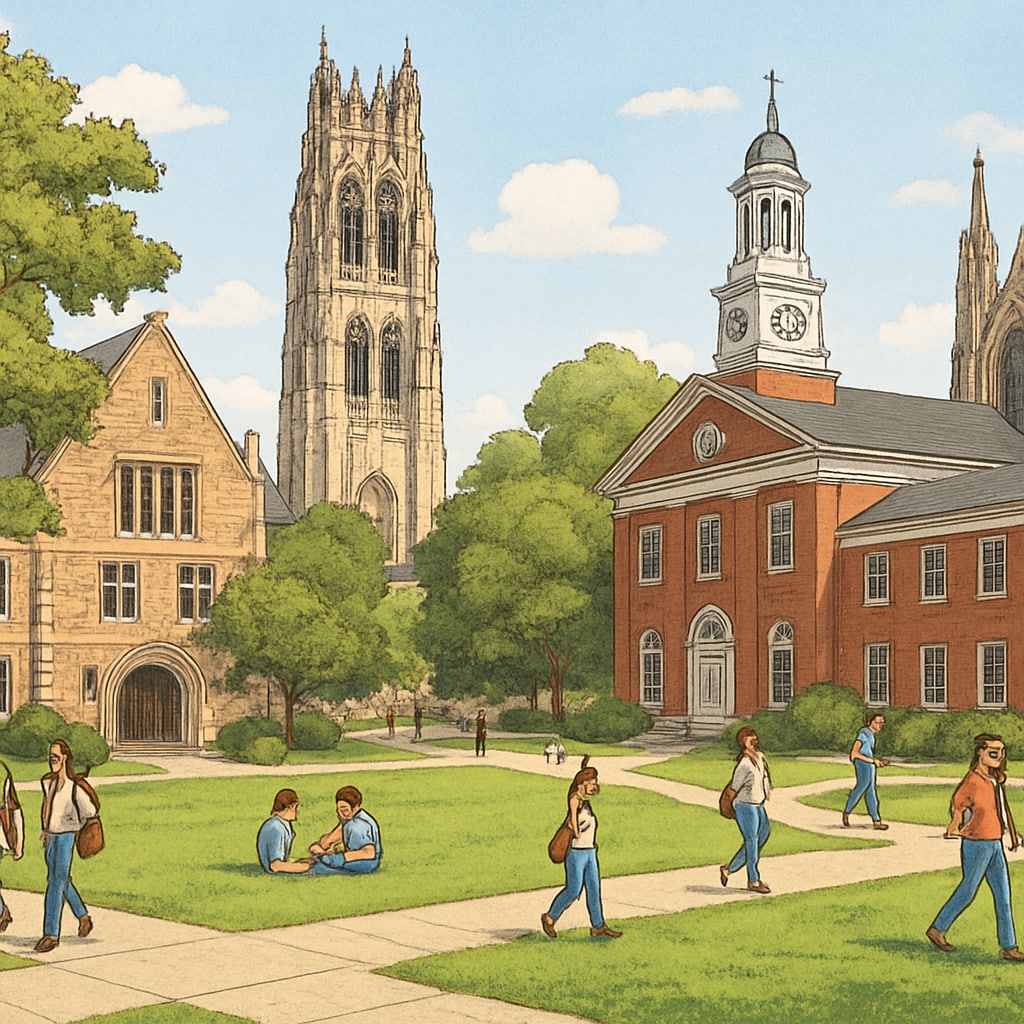The reputation of Princeton and other Ivy League institutions has long been a cornerstone of academic aspiration. However, are these schools truly delivering the extraordinary value they claim, or are they simply riding on a wave of historical prestige? This article examines whether the Ivy League is overrated in terms of educational impact, while analyzing how this “elite school worship” influences students in the K12 education system.
The Myth of Ivy League Superiority
The Ivy League, including renowned institutions like Princeton, Harvard, and Yale, is often portrayed as the pinnacle of higher education. Yet, critics argue that their overwhelming reputation may not always correlate with the educational outcomes they offer. For instance, a Britannica overview of the Ivy League points out that their exclusivity is deeply rooted in historical privilege rather than consistent academic superiority.
While these universities undoubtedly attract top-tier students and faculty, studies have suggested that the actual value-add of attending an Ivy League school compared to other high-ranking universities may be marginal. Many public and private institutions outside the Ivy League also offer cutting-edge research facilities, innovative curricula, and diverse student experiences that rival—or even surpass—the Ivy League.

Impact on K12 Students: The “Name-Brand” Obsession
The glorification of Ivy League schools often trickles down to K12 education, fostering an unhealthy obsession among students and parents. Aspiring to gain acceptance into these “elite” institutions can lead to undue stress, intense competition, and a narrow focus on grades and test scores over holistic development. For example, a Wikipedia article on U.S. college admissions highlights how this phenomenon has reshaped academic priorities, sometimes at the cost of creativity and emotional well-being.
Additionally, the emphasis on Ivy League admissions can overshadow the value of finding a school that truly aligns with a student’s personal and professional goals. Not every student thrives in a hyper-competitive environment, and many would benefit more from institutions that prioritize mentorship, smaller class sizes, and career-specific opportunities.

Reevaluating Educational Value
It’s crucial to shift the narrative from Ivy League prestige to educational fit and outcomes. For prospective students, the key should be identifying universities that offer programs tailored to their interests, rather than being swayed by rankings or brand name alone. Similarly, K12 educators should emphasize the importance of personal growth and lifelong learning over external validation from elite institutions.
Parents and students can benefit from expanding their horizons beyond Ivy League schools, considering institutions that excel in specific fields, innovation, or community impact. By doing so, they may discover hidden gems that provide equal—or even greater—value without the societal pressure attached to an Ivy League name.
In conclusion, while Princeton and other Ivy League schools undeniably offer exceptional opportunities, their reputation may be exaggerated when weighed against the broader landscape of higher education. By shifting focus from prestige to personalized educational value, both students and parents can make more informed decisions, paving the way for truly fulfilling academic journeys.
Readability guidance: Use concise paragraphs with clear transitions. Incorporate lists where appropriate, and keep sentence structures simple yet professional.


